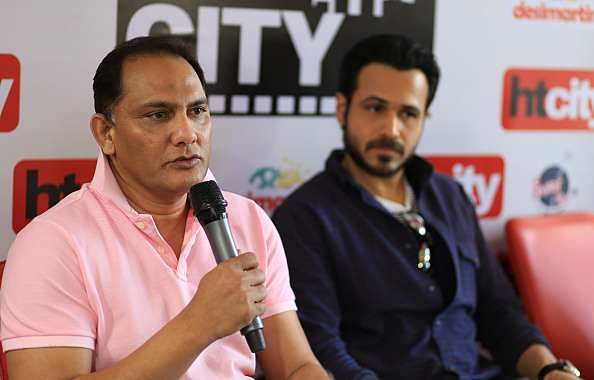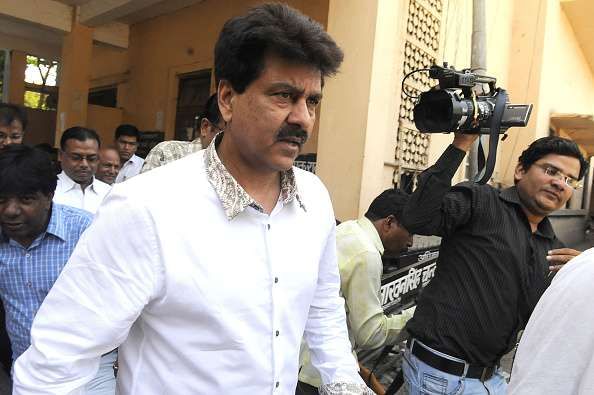
'Azhar' movie review
I sauntered into the cinema hall on Friday morning to watch the first show of the movie ‘Azhar’ with huge excitement, despite the forewarning by former Indian skipper Mohammad Azharuddin that no scene in the movie had been filmed without his approval. From his interviews, one could make out that the movie, based on his life, would more likely be a hagiography rather than a fair and objective account of his cricketing odyssey.
Yet I was gung-ho about watching this movie because there has not been a more fascinating, even if severely flawed, character than Azharuddin in Indian cricket. But I was left brutally betrayed by the craggily contrived and ridiculously disingenuous narrative of the movie, whose sole purpose was to cleanse the grotty stain of match-fixing off Azhar's name and exonerate the eponymous character from all wrongdoing.
The biggest put-off for me was the flagrant mutilation of smoking-gun facts pertaining to key (and controversial) events of his cricketing career. One can condone a few cinematic liberties (songs and other inconsequential stuff) as long as they do not alter the nucleus of the narrative. But how does one accept savagely faulty details related to some of the most important incidents/points of his career?
There are a welter of inaccuracies and inconsistencies, along with many glaring omissions, in the movie, some of which I wish to highlight:
1. Wrong portrayal of fixed match in 1996
Azharuddin has been accused by the CBI of fixing the Rajkot ODI of the Titan Cup (1996) played between India and South Africa, something he admitted before the investigative agency. But in one of the courtroom scenes in the movie ‘Azhar’, it is shown that Azharuddin was wrongly given out lbw by the umpire in the Rajkot ODI. The crowd then created a furore and Azharuddin had to later come out on to the field to placate them.
This is shockingly false information. In the Rajkot ODI, which took place on October 29, 1996, Azhar was caught by Dave Richardson off Nicky Boje. He wasn’t given out lbw, as shown in the movie, neither did the crowd kick up a storm.
The wrong lbw decision the movie is referring to was copped by Azharuddin during the match between India vs Australia at Bangalore in the same Titan Cup. Azharuddin was wrongly given out lbw off Gillespie and the crowd did indeed create a kerfuffle.
Isn’t such a blatant mendacity to prove Azharuddin innocent a cruel affront to the audience?
2. Wrong portrayal of fixed match in 1997
Azharuddin had admitted to the CBI that he also fixed ‘some’ match from a list of two games – India vs Sri Lanka in the Pepsi Cup 1997 and the India vs Pakistan ODI at Jaipur in 1999. While the movie does mention both these matches, there is no explanation about the Jaipur ODI in 1999.
The Pepsi Cup match between India and Sri Lanka (1997) is presented as a totally fictional one. The match shown in the movie didn’t ever take place. The truth is that Sri Lanka thrashed India in the Pepsi Cup 1997 match by 9 wickets. However, in the movie, it is shown that India defeated Sri Lanka and Azhar was adjudged Man of the Match.
3. Added importance given to Tehelka tapes
The film tries to discredit the CBI by claiming that the investigative agency's reports were merely based on the Tehelka tapes. Nothing can be further from the truth.
The Tehelka sting was the brainchild of Manoj Prabhakar to implicate his former team-mates Azharuddin and Kapil Dev. But the CBI investigated Prabhakar too and delivered a stinging indictment for his role in match-fixing. The agency (CBI) implicated Prabhakar as one of the prominent match-fixers.
If the CBI report was indeed based entirely on the Tehelka tapes, as the movie claims, then how come the conceiver and executioner of the tapes – Manoj Prabhakar – was implicated in match-fixing?
That goes to show that the CBI acted independently and investigated thoroughly into the whole murky match-fixing saga by summoning and questioning all the vested parties along with collecting several irrefutable pieces of evidence.
4. Mocks CBI for convicting Azhar, agrees with other convictions
The film corroborates the CBI the report on the conviction of Prabhakar and Ajay Sharma as match-fixers, but acquits the principal character (Azhar). For example, Prabhakar is shown as the man who fixed the India vs West Indies ODI at Kanpur in 1994 when he batted sluggishly and did not even attempt to win the match.
Ajay Sharma, meanwhile, is shown as the man who introduced the bookie (MK) to Azharuddin. The CBI held both of them guilty for the above-mentioned wrongdoings.
However, when it comes to Azharuddin, the movie impugns and almost ridicules the CBI for convicting him.
Ironically, this is how the CBI report actually described Azharuddin’s role in match-fixing: “It is clear that Azharuddin contributed substantially towards expanding the bookie/player nexus in Indian cricket. There is also evidence which discloses that he roped in other players also to fix matches, which resulted in this malaise making further inroads into Indian cricket.”
Of course, the movie absolves Azharuddin of all such charges on the basis of ‘fictionalised’ matches (as mentioned in point numbers 1 and 2).

